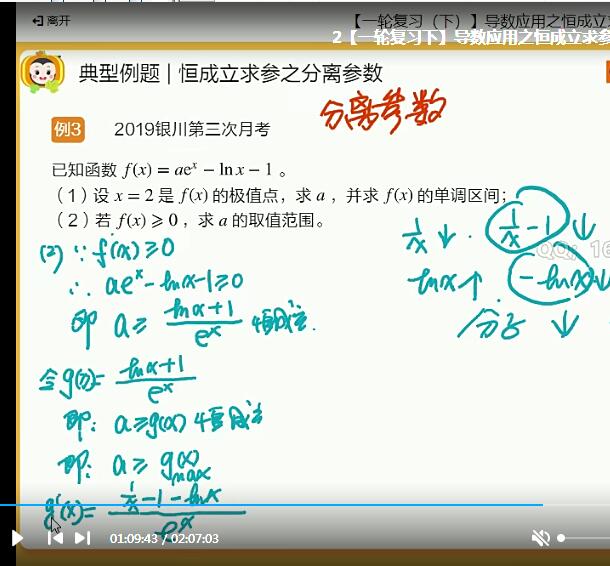宁夏九年级英语中考第一轮复习(1)冠词,名词,代词
发布于 2021-03-26 16:54 ,所属分类:在线教育信息快讯
其他知识点,我会陆续创作整理完,尽管拿去用,就说你自己整的。
努力复习,考上一中!


5)表示人或事物的某一种类
A bird can fly.
鸟会飞。
2、不定冠词a,an的区别
1)a用于辅音因素开头的单词前
There is a tall tree in front of my house.
我的房前有一棵高高的树。
2)an用于元音音素开头的单词前
What an interesting photo it is!
这是一张多么有趣的照片啊!
考点二、定冠词the
1、上文已提到过的人或事物
I saw a movie last night. The movie is very interesting.
昨天晚上我看了一部电影。这部电影非常有趣。
2、双方都熟悉的人或事物
The schoolbag on the desk isn't mine.
桌子上的那个书包不是我的。
3、世界上独一无二的事物前
The sunis far away from the earth.
太阳离地球很远。
4、序数词,形容词的最高级前
The last passage is as easy as the first one.
最后一篇文章和第一篇一样简单。
This mooncake is the nicest of all.
这块月饼是所有月饼中最好吃的。
5、单数可数名词前,表示一类人或物
The horse is a useful animal.
马是一种有用的动物。
6、姓氏复数前,表示“一家人”或“夫妇”
The Greens are having lunch at the moment.
格林一家现在正在吃午饭。

7、the后加形容词,表示一类人或事物
The new is taking the place of the old.
新生事物最终会替代旧事物。
8、演奏乐器的名称前
Do you like playing the piano?
你喜欢弹钢琴吗?
考点三、零冠词
1、名词前已有指示代词、物主代词或不定代词
Give me that pencil, please.
请把那支铅笔给我。
I have some questions to ask you.
我有一些问题要问你。

2、物质名词,抽象名词,人名、地名等专有名词和不可数名词前
Milk is good for us.
牛奶对我们有好处。
I think Zhongwei is a beautiful city.
我认为中卫是一个美丽的城市。
3、三餐,球类运动与棋类游戏前
They had supper with us yesterday.
他们昨天和我们吃了晚饭。
She likes to play volleyball.
她喜欢打排球。
Let's go and play chess.
我们去下棋吧。
4、星期、月份、季节、节日前
It's Friday today.
今天是星期五。
The girl was born on June 12,2011.
那个女孩出生于2011年6月12日。
If winter comes, can spring be far behind?
冬天来了,春天还会远吗?
Today is Mother's Day.
今天是母亲节。
5、称呼语或表示头衔的名词前,在特定范围内只有一个,遵循独一无二原则,不加the;
Mr. Zhang is headmaster of our school.
张先生是我们学校的校长。
6、具体的学科、各种语言前
Chinese is one of the most important languages.
汉语是最重要的语言之一。
7、表示交通方式的介词短语中
We are going to the museum on foot tomorrow.
我们打算明天步行去博物馆。
【巧记】
零冠词用法口诀:
球类学科和三餐;
专有名词不可数,星期月份季节前;
交通方式和节日,习俗称呼和头衔。
二、名词
名词是中考考查的重点,考查内容主要为:
1、常用专有名词的表示方法;
2、名词词义的辨析;
3、可数名词单、复数变化规则及其用法;
4、不可数名词量的表示方法;5.名词所有格的运用方法。
考点一、常用专有名词
1、人名和地名。
如:Jackie Chan, New York
2、国名。
如:China, England
3、一周七天。
如:Monday, Tuesday
4、一年十二个月。
如:May, September
5、节日。
如:Children's Day, Christmas
6、专有名词缩写形式。
如:USA, CD
考点二、名词词义辨析
名词词义辨析主要指考生在不同的语言环境中,通过对上下文的理解或者对一些词义相近的名词的掌握情况作出正确的选择。
考点三、名词的数
名词分可数名词与不可数名词两类。可数名词一般有单、复数变化形式。其复数形式分为规则和不规则两种:
1、可数名词的复数规则变化构成方法
1)一般情况下,在名词的末尾加-s
desk→desks apple→apples
我昨天吃了些苹果。
I had some apples yesterday.
2)以-s,-x,-sh,-ch结尾的名词,在词尾加-es
class→classes box→boxes wish→wishes watch→watches
我明天要上6节课。
I will have six classes tomorrow.
3)以辅音字母加-y结尾的名词,把y变成i,再加-es
country→countries factory→factories
世界上有很多国家。
There are many countries in this world.
4)以-f或-fe结尾的名词,把f或fe变为v,再加-es
knife→knives wife→wives leaf→leaves
韦小宝想娶好多老婆。
Wei Xiaobao wishes to have many wives.
【巧记】
以下都是需要将f或fe变成v加-es的常见单词:
小偷(thief)妻子(wife)切面包(loaf),
半(half)片树叶(leaf)当作刀(knife),
切开里面一条狼(wolf),
方知自己(self)命(life)难保。
5)以-o结尾表示有生命的名词,在词尾加-es
tomato→tomatoes hero→heroes
这些伟大的英雄非常爱吃番茄和土豆。
These great heroes love eating tomatoes and potatoes.
6)以-o结尾的表示无生命的名词,在词尾加-s
radio→radios photo→photos
这些照片里有好多收音机。
There are many radios in these photos.
2、可数名词的复数不规则的变化
1)复合名词
1、将后一个名词变为复数
tooth brush→tooth brushes egg basket→egg baskets
我的洗手间有四个牙刷。
There are four tooth brushes in my bathroom.
2、两个名词都变复数,作定语的名词是man,woman
man doctor→men doctors woman teacher→women teachers
这次会议有很多男医生和女老师。
There are many men doctors and women teachers in this meeting.
2)特殊名词
1、改变内部
foot→feet tooth→teeth man→men mouse→mice
大多数老鼠都有四只脚和很多牙齿。
Most of mice have four feet and many teeth.
2、词尾加-ren
child→children
我家有很多小孩。
There are a lot of children in my family.
3、单复数同形
Chinese→Chinese sheep→sheep deer→deer
很多中国人都认为我们需要多吃鱼。
Many Chinese think we need to eat more fish.
4、本身是复数
clothes,people,police
一些人每年都需要买很多衣服。
Some people need to buy many clothes every year.
5、视为整体时,谓语用单数;视为个体时,谓语用复数
family,class,team,group
我有一个大家庭。
I have a big family.
我全家人都在看电视。
My family are watching TV right now.
考点四、不可数名词
不可数名词是指不能直接用数字计数的词。不可数名词的常用量化表达方式有:
1、用some,much,little,a little,a lot of,lots of,plenty of等来表示。
much water 很多水some orange juice 一些橘子汁
我需要很多冰水让我自己冷静下来。
I need much cold water to make myself calm down.
2、用容器来表示。
a cup of coffee 一杯咖啡 ten bags of rice 十袋大米
请给我一杯咖啡。
Please give me a cup of coffee.
3、用计量单位来表示。
a piece of paper 一张纸 a slice of bread 一片面包
我们应该节约每一张纸。
We should save every piece of paper.
考点五、名词所有格
1、有生命的名词(人或动物)
1)在词尾加-'s
Tom's book; the girl's earring; the dog's ears; the hero's name
这是汤姆的书。
This is Tom’s book.
2)以-s, -es结尾的复数名词只加-'
the boys' desks ; the teachers' office ; the glasses' price
这些男生的桌子很干净。
These boys’ desks are very clean.
3)不以-(e)s结尾的复数名词加-'s
men's clothes;Children's Day;Women's Day;sheep's wool
有一个商店卖男人的衣服。
There is a store selling men’s clothes.
2、无生命的名词
1)时间、世界、国家、城市等
(1)一般在词尾加-'s
Beijing's industries ; the world's population ; today's news
今天的新闻非常有趣。
Today’s news is very interesting.
2)其他
(1)一般用“of+名词”结构
the door of the room ; the legs of the tables; a way of life
这个屋子的门太小了进不去。
The door of the house is too small to get in.
【注意】
1、有些名词所有格后加“-'s”后,可以省去,表示相关处所的名词。
the doctor's (医生诊所), Mr. White's (怀特先生家)等。
2、既表示所属关系又表示数量时要用双重所有格。
an old friend of my uncle's, a photo of Jim's family等。
这是一张吉姆全家人的照片。
This is a photo of Jim’s family.
3、两个或多个名词表“共有”某物时,在后-个名词的词尾加-'s。
Lily and Lucy's desk
莉莉和露西的妈妈很漂亮。
Lily and Lucy’s mother is very beautiful.
两个或多个名词分别有某物时,每个名词后都加-‘s
Lily's and Jack's mothers
莉莉的妈妈和杰克的妈妈正在唱歌。
Lily's and Jack's mothers are singing.
三、代词
中考对代词考查的重点有:
1、人称代词和物主代词的用法;
2、it,one(s),that,those等作替代词的用法;
3、指示代词,疑问代词,反身代词的用法;
4、不定代词的用法,尤其是all,both,either,neither, none,another, the other, some, others, the others等的用法。
考点一、人称代词、物主代词、反身代词
1、人称代词
人称代词有人称、数和格的变化;人称代词有主格和宾格之分。通常主格用作主语,宾格用作宾语。

【注意】
1、人称代词作并列主语的排列顺序:
1)单数形式:you and I;you,he and I;
2)复数形式:we and you;we and they;we,you and they。
3)但是,承担责任时总是第一人称在前。
2、及物动词和介词之后的人称代词要用宾格。
2、物主代词
表示所有关系的代词叫物主代词。物主代词分形容词性物主代词和名词性物主代词,有人称和数之分。

形容词性物主代词的作用相当于形容词,可在句中作定语。
名词性物主代词的作用相当于名词,在句中可用作主语、宾语和表语。
例:
My books are on the desk. Where are yours?
我的书在桌子上,你的书在哪里?
【巧记】
形物代与名物代转换口诀:
一变:my变mine;二不变:his,its不变;其余加s:其余直接加-s。
3、反身代词
英语中用来表示“我自己”“你自己”“他自己”“我们自己”“你们自己”等意义的代词称为反身代词,有人称和数的变化。
单数后加-self,复数后加-selves;不定代词one也有反身代词oneself。
反身代词可以在句中作宾语、表语、同位语。

常与反身代词连用的动词(短语):enjoy,hurt,teach,call,help,look after,all,by等。
请随便花我的钱。
Please help yourself to my money.
【注意】
反身代词不能放在名词之前作定语,表达“某人自己的东西”常用one's own+sth.
我花我自己的钱。
I spend my own money.
【巧记】
反身代词的构成规律口诀:
反身代词有规律,第三人称用宾格;其余开头用物主,复数-ves替f。
考点二、不定代词
1、普通不定代词
1)some与any:
(1)some和any均表示“一些”,既可修饰可数名词,也可修饰不可数名词。
(2)some一般用于肯定句中,any多用于疑问句、否定句和条件句中。
(3)但在疑问句中,当表示说话人希望得到肯定回答或表达请求、建议时应用some。
有一些好东西在我床底下。
There are some wonderful things under my bed.
你有钱吗?
Do you have any money?
没,我一点钱都没有。
No, I don’t, I don’t have any money.
你想来些辣条吗?
Would you like some Latiao?
2)many与much:
(so/too/as/how) many+可数名词复数;(so/too/as/how) much+不可数名词。
我屋子里有很多花,它们每天都能获取很多阳光。
I have many flowers in my room, they get much sunshine every day.
3)either与neither:
(1)either指两个人或物中的一个,neither指两者都不,常构成固定搭配either/neither of+名词/代词的复数+谓语动词(第三人称单数形式);
(2)当either...or...和neither...nor...连接两个主语时,谓语动词应与离它最近的主语在人称和数上保持一致(就近原则)。
我有两兄弟,他俩都有女朋友。
I have two brothers, either of them has girlfriend.
我有两兄弟,他们都不打篮球。
I have two brothers, neither of them plays basketball.
在周末,他要么在家睡着,要么在家闲着。
On weekends, he either sleeps or does nothing at home.
我要么今天来,要么明天来。
I come either today or tomorrow.
4)both与all:
both表示“两者都”,常与and连用;all指“三者或三者以上都”,常与of连用。
杰克和大卫都喜欢在厕所里看书。
Both Jack and David like reading in the bathroom.
5)each与every:

Everyone of the students in her class studies very hard.
她班上每个学生学习都很用功。
Each of the students has something to do.
每个学生都有事情做。
6)(a) few与(a) little:
肯定:a few+n.(复)/a little+n.(不可数),常作主语、宾语、表语
否定:few+n.(复)/little+n.(不可数),常作主语、宾语、表语
有一点钱和一点书在我的包里。
There is a little money and a few books in my bag.
7)区别other,the other,others,theothers,another

尽管我试了这么多衣服了,但我还是要再试一件。
Although I have tried on so many clothes, I still want to try another one.
你还有其他手机吗?
Do you have other mobile phones?
河的一边有一些男生,另一边有一些女生。
There are some boys on one side of the river, and some girls on the other side of it.
我们有好事应该先想到他人。
We should think of others first when we meet something good.
我们班有两个地方的学生,一些来自中卫,其余的都来自宣和。
Students in my class come from two places, some of them are from Zhongwei, the others are from Xuanhe.
8)no one与none

None of them is/are in the room.
他们当中没有一个在房间里。
-Who is absent from classes today?
-今天谁上课缺席?
-No one, sir.
-没人缺席,先生。

-How much money do you have?
-你有多少钱?
-None.
-一点也没有。
【注意】
nothing只能指物,常回答what的提问。
-你干啥呢?
-What are you doing?
-没干啥。
-Nothing.
2、复合不定代词
由some-,any-,every-,no-与-one,-body,-thing构成的代词称为复合不定代词。

【注意】
(1)在反意疑问句中,
当陈述部分的主语是指人的复合不定代词,如everybody,nobody,anyone等时,疑问部分的主语通常用代词they;
当陈述部分的主语是指物的复合不定代词,如everything,anything,something,nothing等时,疑问部分的主语通常用代词it。
(2)当形容词或else修饰复合不定代词something,everything,everyone等时,形容词或else在复合不定代词之后;
还有其他人吗?
Is there anyone else?
(3)单词everyone相当于everybody,只能指人;短语every one既可指人,也可指物,还可以和of连用。


![中考第一轮复习(数学) 几何高频考点精讲(三角形 四边形)[朱毓斌11讲全]](https://static.kouhao8.com/jienuo/8e52e4536d8345883861adb28d3e1af4.png?x-oss-process=image/format,webp/resize,w_88/crop,w_88,h_88,g_nw)
![中考第一轮复习(数学) 几何高频考点精讲(三角形 四边形)[朱毓斌11讲全]](https://static.kouhao8.com/jienuo/7fb14d16f82b5b6bed3adefd2617080e.png?x-oss-process=image/format,webp/resize,w_88/crop,w_88,h_88,g_nw)













![【顾斐】高考英语总复习年卡(一轮+二轮)(通用版)[百度云资源]](https://static.kouhao8.com/cunchu/cunchu7/2023-05-18/UpFile/defaultuploadfile/230425ml/216-1.jpg?x-oss-process=image/format,webp/resize,w_88/crop,w_88,h_88,g_nw)









相关资源